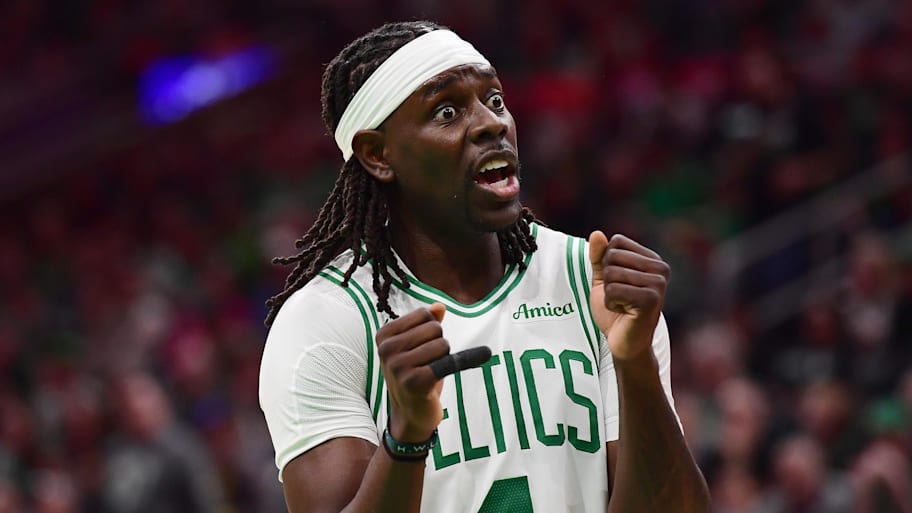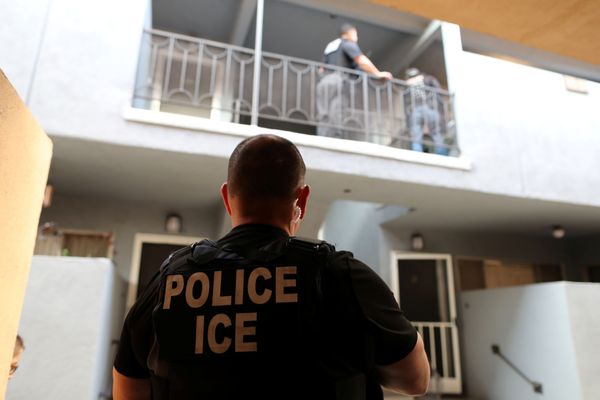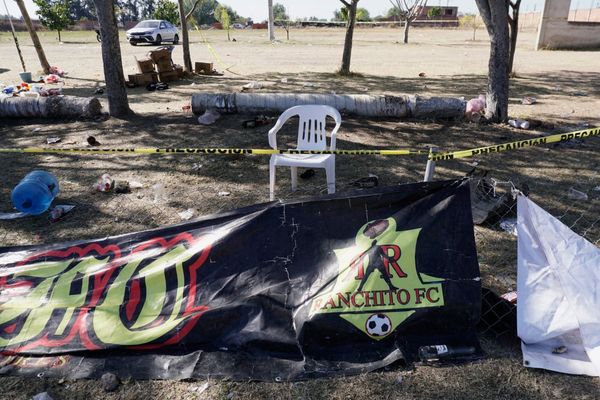
The Kevin Durant blockbuster trade ahead of Game 7 of the NBA Finals appears to have opened the floodgates for NBA trade season to begin. After the Houston Rockets sent Jalen Green, Dillon Brooks, a handful of second-round picks, and the No. 10 pick in the draft to the Phoenix Suns in exchange for Durant on Sunday, it took just over 24 hours for another big trade to be agreed to.
On Monday night the Boston Celtics agreed to trade Jrue Holiday to the Portland Trail Blazers in exchange for Anfernee Simons and a pair of future second-round picks. It is a significant transaction in several ways. The Celtics, facing steep financial penalties as a result of their payroll being over the second apron, have broken up their championship core from just one year ago by trading Holiday. The Blazers, meanwhile, re-acquire Holiday after employing the point guard for a brief stretch following the Damiain Lillard trade in 2023 and clear up a logjam of young scorers in their backcourt in the process.
It's a big trade with multiple layers of implications. To fully lay out the positives and negatives for both sides, let's grade the trade for the Celtics and Blazers.
Boston Celtics
Trade Grade: A
This is a pretty darn good trade for the Celtics considering the corner they are painted in. If Boston didn't move any players from this year's roster, the team was facing a total cost of nearly $500 million between all the big salaries and the harsh tax penalties that come along with being over the NBA's second apron. That was going to be a lot of money no matter what— and then Jayson Tatum tore his Achilles, knocking the Celtics out of contention for next season . There was no universe in which the franchise kept everybody. It would just be too expensive for a team that quite possibly wouldn't have its best player on the court for the postseason next year.
The problem entering the offseason was that the rest of the NBA knew that, so there were real questions about whether team president Brad Stevens would be able to get any value for the players he traded. Especially in regards to Holiday. He still has a lot to contribute on the court but as a 35-year-old with three years remaining on a $134 million extension he seemed like the obvious choice to be on the move. All those factors combined seemed to indicate Boston would not be able to find much of a return, if any, to get off Holiday's salary.
It turns out that worry was unfounded.
In striking this deal with Portland the Celtics are free of Holiday's salary this year and, more importantly, the next two years as well. Simons only makes $5 million less than Holiday, slated to earn $27.6 million, but that difference alone saves Boston over $40 million for the 2025-26 season. The primary goal of making any trades this offseason was to lessen the financial pressure so the team could maintain flexibility heading into a strange middle ground season where there isn't a path to a championship but outright tanking isn't in play either. They accomplished that by trading Holiday at all, making it a win.
But what makes this an A is that Stevens managed to get value in return for Holiday even outside the money aspect. Simons is a 26-year-old sharpshooter who was one of 20 players to make 200 three-pointers last season; he joins three others in Tatum, Derrick White, and Payton Pritchard in Boston. He averaged 19.3 points per game while shooting 36.3% from deep. Simons is also entering the final year of his contract. This means the Celtics are not committed to him in any way after next season should he fail to shape up on the defensive end, as has long been the concern with Simons. And on top of that Boston squeezed two second-rounders out of Portland, too, which are unlikely to pay dividends in the draft but can be used to facilitate other moves.
To put it shortly: the Celtics traded a player they needed to trade (and everybody knew they needed to trade) for a good young player who fits their system and draft assets, giving themselves significant financial relief in the process. Whether or not Simons stays with the franchise past this season, that's well above and beyond most expectations for what Boston was going to get for Holiday.
Portland Trail Blazers
Trade Grade: B-
On paper this seems like a ridiculous move for Portland. The team trades a 26-year-old flamethrower of a scorer, drafted and developed in Portland, for a more expensive player nearly 10 years his senior. And the Blazers threw in draft assets to grease the wheels on top of it all. What's the plan here?
If you squint, though, you can see the beginning stages of a young team trying to take the next step. The Blazers have invested heavily in their backcourt in recent drafts despite the presence of Simons, with Scoot Henderson and Shaedon Sharpe looking like the pairing of the future in Portland. They clearly were not sold on Simons and while he is talented he isn't the type of player who makes his teammates better given his lack of assists and poor defense. Holiday is effectively the opposite in every way. He isn't going to put up huge scoring numbers anymore but he knows how to do all the little things to make life easy for everybody and still possesses incredible defensive chops to go long with whatever value one places in veteran mentorship.
Holiday also fits the vision of what the Blazers are trying to turn into. Portland finished the season in the lottery again but ranked ninth in the NBA in points allowed per game after the All-Star break and played .500 basketball in that stretch. That marks a big step for a team that hasn't finished with a winning record since 2020-21 and they did it despite poor defensive tendencies from the Simons/Sharpe/Henderson backcourt combination.
The Blazers clearly believe the roster can win games by shutting opponents down with Holiday teaming up with fellow All-Defense member Toumani Camara and Deni Avdija. That makes for a great defensive trio before taking into account any growth from Donovan Clingan as a rim protector. Then you add in all the intangibles Holiday brings as a two-time NBA champion and Olympic gold medalist and his consistent impact in the community of his team, and the Blazers' vision is clear: there's been enough tanking in Portland. It's time to win some games.
Will it lead to a championship in the near future? Almost certainly not. Holiday isn't that kind of player anymore. The Blazers have a collection of good players with no great ones yet. But that was true before this trade. Executing this transaction gives the team a direction it has lacked for a while now, and that makes it worthwhile even if Holiday's contract could quickly become onerous.
Adding in the draft picks is the confusing part that knocks this down a peg or two. They knew as well as the rest of the NBA that Holiday was going to get moved no matter what, and Simons is a perfect fit for Boston in terms of what it wanted in return. It seems like he alone should've been enough, and one can't help but wonder if the Blazers were competing with themselves by slapping on the second-rounders. Those picks are huge longshots to be worth much but could have been used to aid the roster in other ways.
A solid move for Portland, if not a perfect one.
More NBA on Sports Illustrated
This article was originally published on www.si.com as Jrue Holiday Trade Grades: How Did Celtics, Trail Blazers Fare?.







